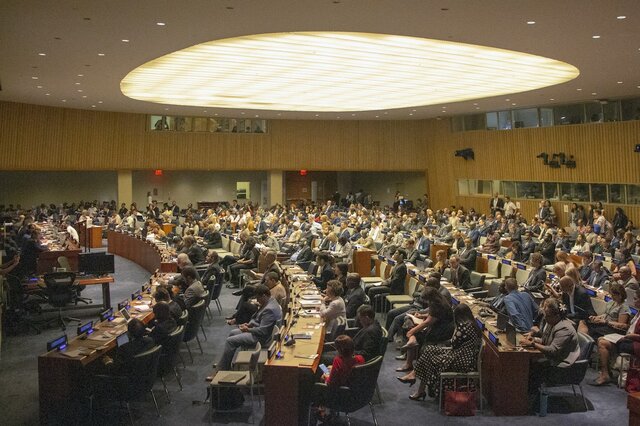Pretoria — South African President Cyril Ramaphosa on Friday welcomed Washington’s support for two permanent seats for African nations on the UN Security Council, but said refusing them veto rights would make them “second-class citizens”.
The United States said on Thursday that it supported creating two permanent seats for Africa but they should not wield veto power over council resolutions, unlike the current permanent members — Britain, China, France, Russia and the United States.
The United States supports creating two permanent United Nations Security Council seats for African states and one seat to be rotated among small island developing states, US Ambassador to the UN Linda Thomas-Greenfield announced https://t.co/qEHWclPMlP pic.twitter.com/zyfQ91EciN
— Reuters (@Reuters) September 13, 2024
Not having a continent of 1.3 billion people represented on the Security Council diminishes the role of the United Nations, Ramaphosa said at a press conference.
However, refusing them the same rights as the other permanent members “means that we become second-class citizens once again”, he said.
“We demand and require that we should have serious participation on the UN Security Council,” he said. “We cannot have a second-class participation as Africa on the UN Security Council.”
The decision on which nations should hold the two seats would need to be up to the African Union, he added.
African nations already have three non-permanent seats on the Security Council, allocated on a rotating basis for two-year terms.
South African President Cyril Ramaphosa on Friday welcomed the push for Africa to get permanent seats on the UN Security Council. He however denounced proposals to deny the continent veto rights, saying that would make them “second-class citizens”. pic.twitter.com/R4f38zwIFg
— CGTN Africa (@cgtnafrica) September 13, 2024
Any change in membership would first require adoption and ratification by two-thirds of the 193 member states.
Reform of the Security Council, long-stalled because of differences among its permanent members, would also need to be ratified unanimously among the five top-tier powers, which are all nuclear-armed.
Follow African Insider on Facebook, Twitter and Instagram
Source: AFP
Picture: Matthew Ten Bruggencate on Unsplash
For more African news, visit Africaninsider.com


